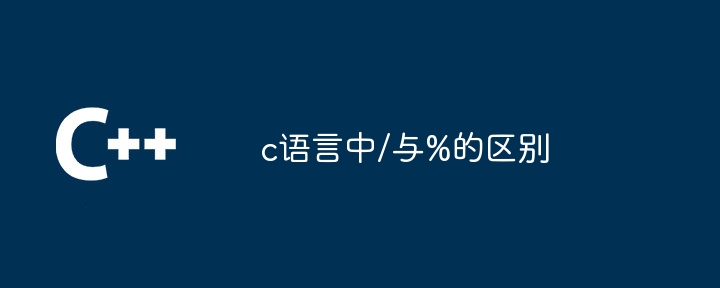
The / and % operators in C are used for different types of division operations: / performs a floating-point division, returning a floating-point number as the result. % Performs an integer modulo operation and returns an integer as the remainder.

The difference between / and % in C language
/ and % are two operators in C language that are used to perform different types of division operations.
/ (Division operator)
/ operator is used to perform floating point division, producing a floating point number as result. It finds the value of the quotient based on the divisor and dividend. The syntax is as follows:
result = dividend / divisor;
% (modulo operator)
% operator is used to perform integer modulo An operation that produces an integer as the result. It finds the value of the remainder of a division based on the divisor and dividend. The syntax is as follows:
remainder = dividend % divisor;
Difference
/ returns a floating point value, while % Returns an integer value. / Perform floating point division, % perform integer modulo. / can operate on floating point or integer, while % can only operate on integer. Example
int dividend = 10; int divisor = 3; float result = dividend / divisor; // 结果为 3.333333 int remainder = dividend % divisor; // 结果为 1
The above is the detailed content of The difference between / and % in c language. For more information, please follow other related articles on the PHP Chinese website!




